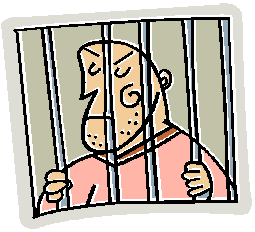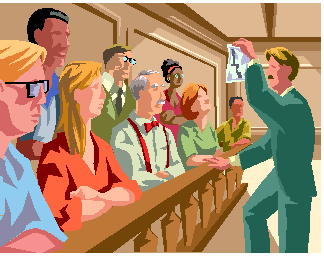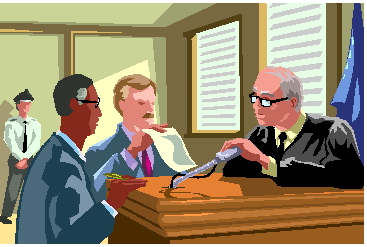 |
A Criminal's Perspective: Let's just pretend for a
minute that the average Joe is thinking about committing a crime, (let's
say, murdering someone) and he wants to make sure that nothing will go
wrong. He wants his tracks to be covered, and he doesn't want
anything linking him to the crime. That's the case for any criminal,
right? Well, in order to be able to get away with anything, our
average Joe needs to know a lot about forensics. He needs to
understand that the simplest trace of him at a crime scene, like his
blood, fingerprints, or hair, can link him to the crime through the use of
DNA analysis. Even leaving a footprint on the ground can make him
traceable. In order for average Joe to commit a crime, he needs to
know exactly what the police are looking for, and exactly what is going to
be studied in a forensics laboratory. |
 |
An Innocent Person's Perspective: What if a different person is arrested for average Joe's crime? The innocent person cannot just rely on his own words, there needs to be evidence to back it up. This person is in desperate need of some forensic science work! They need to understand what kind of forensic work will be done, just like average Joe. They must be willing to give blood and urine samples, to take lie detector tests, and to be psychologically analyzed. They need to remember that if they are innocent, the forensic evidence will set them free. |
 |
A Jury Member's Perspective: Juries are a key part of the court system. Without them, we would not be able to send people to jail. The jury people need to understand how forensic science works, and how to analyze the evidence. There may be a DNA fingerprint used against a suspect in an attempt to convict them. The jury people need to be able to look at that fingerprint and determine if it is incriminating or not. Knowledge of forensics is key in a criminal court case for jurors. |
 |
A Lawyer's Perspective: For lawyers on both sides of a case, forensic science is extremely important. It can make or break a case. Lawyers need to have that science available to them in order to protect their clients. With an understanding of what each technique does, they may be able to ask for more analysis in a certain area. They might even ask for more tests to be done in support of their client. For example, any good lawyer that has a truly innocent client will make their client submit to a blood test to prove their innocence. |
